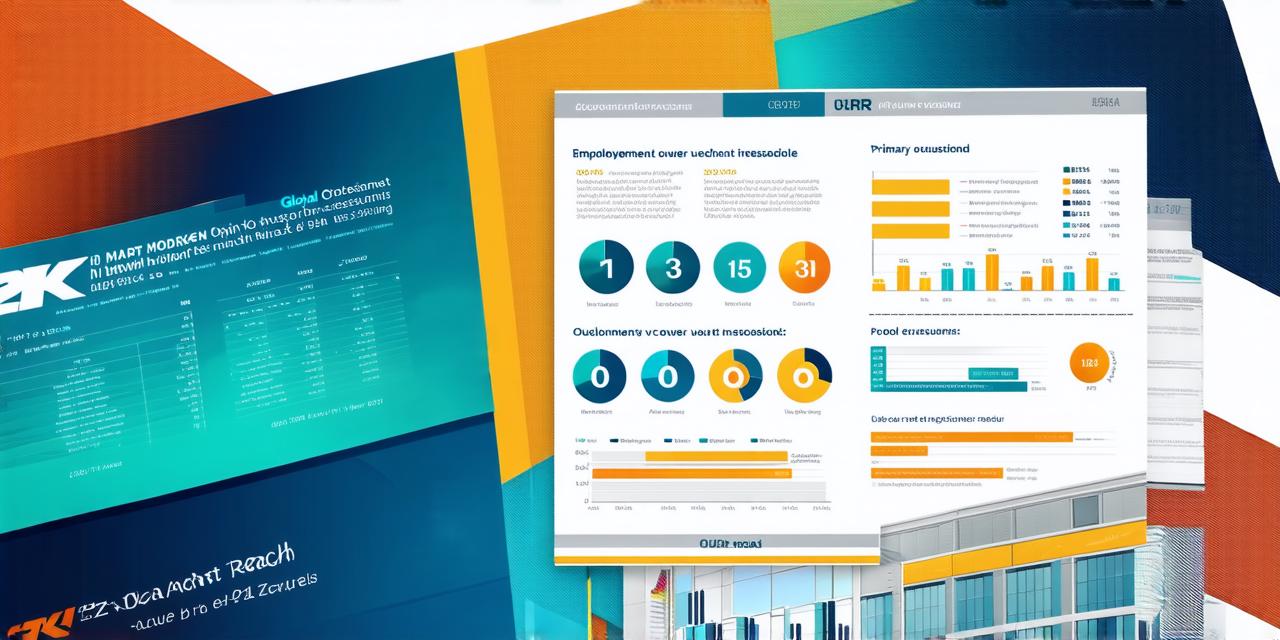Introduction
Human resource (HR) outsourcing is becoming increasingly popular among businesses of all sizes. It involves delegating certain HR functions such as payroll, benefits administration, and recruitment to an external provider. This approach can help organizations save time, money, and resources by focusing on their core business operations while the HR functions are handled by professionals.
Market Size and Growth Trends
According to a report by MarketsandMarkets, the global HR outsourcing market was valued at USD 372.8 billion in 2020 and is expected to grow at a CAGR of 14.5% from 2021 to 2026. The growth can be attributed to several factors such as increasing competition, rising labor costs, and the need for organizations to focus on their core business operations.
The HR outsourcing market is segmented into various services such as payroll, benefits administration, recruitment, training and development, and performance management. Each of these segments has its own growth trends and opportunities. For instance, the payroll segment is expected to grow at a CAGR of 10.5% from 2021 to 2026, while the training and development segment is projected to grow at a CAGR of 8.9% during the same period.
Benefits of HR Outsourcing
Outsourcing HR functions can provide several benefits to organizations such as cost savings, improved efficiency, and access to specialized expertise. Here are some of the key benefits:
Cost Savings
HR outsourcing can help organizations save time and money by delegating certain HR functions to external providers. For instance, payroll processing and tax compliance can be costly and time-consuming for businesses to handle in-house. By outsourcing these functions to a payroll provider, organizations can reduce the costs associated with hiring and training internal staff and minimize the risk of errors.
Improved Efficiency
Outsourcing HR functions can help organizations improve their efficiency by freeing up time for business leaders to focus on their core operations. For instance, recruitment and onboarding processes can be streamlined by working with an external HR provider that specializes in these functions. This can save businesses time and resources while ensuring a seamless employee experience.
Access to Specialized Expertise
HR outsourcing can provide organizations with access to specialized expertise that may not be available in-house. For instance, an external HR provider may have experience in managing complex compliance issues or implementing cutting-edge HR technology. This can help businesses stay ahead of the curve and ensure they are meeting industry standards.
Challenges Associated with HR Outsourcing
While outsourcing HR functions can provide several benefits, it also comes with its own set of challenges. Here are some of the key challenges:
Communication
Effective communication is critical to the success of any outsourcing relationship. Organizations must ensure that they have clear lines of communication with their external providers and can quickly address any issues that arise.
Data Security
Data security is a major concern when it comes to outsourcing HR functions. Organizations must ensure that their external providers are compliant with data protection regulations and have appropriate measures in place to protect sensitive information.
Integration with Internal Systems
Outsourcing HR functions can be complex, particularly when integrating external systems with internal ones. Organizations must ensure that their external providers are able to integrate their systems seamlessly with the internal HR systems.
Real-Life Examples of HR Outsourcing
To illustrate the points being made, let’s look at some real-life examples of HR outsourcing:
Example 1: A Small Business

A small business owner may choose to outsource their payroll and benefits administration functions to an external provider. This can help them save time and money on these tasks while ensuring compliance with labor laws. They can also benefit from access to specialized expertise and technology that they may not have the resources to implement in-house.
Example 2: A Large Corporation
A large corporation may choose to outsource their recruitment and onboarding functions to an external HR provider. This can help them streamline these processes and ensure a seamless employee experience. They can also benefit from access to specialized expertise and technology that may not be available in-house.
FAQs
Q: What are the benefits of outsourcing HR functions?
A: Cost savings, improved efficiency, and access to specialized expertise are some of the key benefits of outsourcing HR functions.
Q: What are some challenges associated with HR outsourcing?
A: Communication, data security, and integration with internal systems are some of the challenges associated with HR outsourcing.
Q: Can small businesses benefit from outsourcing HR functions?
A: Yes, small businesses can benefit from outsourcing certain HR functions such as payroll and benefits administration to save time and money while ensuring compliance with labor laws.
Summary
HR outsourcing is becoming increasingly popular among businesses of all sizes due to its ability to provide cost savings, improved efficiency, and access to specialized expertise. While there are challenges associated with outsourcing HR functions, these can be mitigated through effective communication and careful planning. By understanding the market size and growth trends, as well as the benefits and challenges of HR outsourcing, businesses can make informed decisions about whether outsourcing is the right choice for them.
